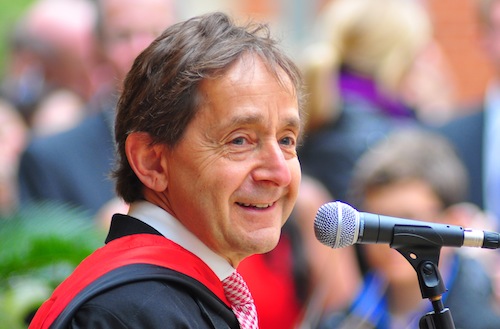Innovation is key to excellence
Posted on 6th May 2015 in Which School?
The educational reforms of the past decade – the creation of academies, free schools and teaching school alliances to name but three – have brought rapid change and real improvement to the state sector. Just as importantly, they have provided opportunities for state and independent schools to work more closely together, something which has happened all too little in the past and which will bring huge benefits to both sectors if developed much further in the future.
The best state schools provide an excellent education, of this there is no doubt: they offer inspirational and innovative teaching, use sophisticated data to monitor pupil progress closely, and are swift to employ tried and tested interventions if things aren’t as they should be. All Head teachers in the independent sector would naturally argue that their schools do the same. Crucially, however, there remain a number of key areas where independent schools get it right which explains why more children are now being educated in our sector than there were at the beginning of the economic downturn in 2008.
Independent schools continue to dominate league tables both in terms of public examination results and entrance to the top universities. More than half of the A level results achieved at independent schools last year were either A* or A grades, enabling those pupils to enter our best universities. The smaller class sizes and greater teacher-pupil ratios which exist in almost every independent school are crucial too, allowing teachers to deliver curricula in a more effective, targeted and differentiated manner, dealing with the needs of each and every individual pupil on a day-to-day basis. I believe passionately that the very best schools are more than mere exam factories churning out top results every year, but it is also difficult for parents to ignore the proven track record and aspirational academic cultures which exist in so many of our independent schools.
So, what helps make independent schools more than mere exam factories? The facilities and grounds of most are excellent with state of the art provision in music and theatre, extensive sports facilities and regular investment in classroom technology. Longer school days and a much broader range of extra-curricular activities mean that independent schools offer a truly holistic education, challenging and nurturing pupils across all of their talents and aptitudes, not just a narrow, academic few. And the focus that so many independent schools place on developing character and leadership, from competitive sport to thriving CCF and Duke of Edinburgh schemes, mean that children educated at independent schools develop the skills needed both to lead and serve others in later life.
It is therefore no surprise that men and women educated at independent schools exert a numerically disproportionate influence on just about every sphere of public life. But it is not simply within the traditional areas of law, politics and the church where this is visible; many of the nation’s leading lights in the arts, media and sport are alumni of the independent sector. It is a well-publicised fact that 37% of Team GB’s gold-medal winners at the London Olympics were privately educated, leading Sir Michael Wilshaw to lament recently the fact that competitive sport has become merely an ‘optional extra’ in the state sector.
Of course, none of this would be possible if our independent schools did not have many of the very best teachers and leaders in education working within them. Independence gives our schools the freedom to employ some of our finest graduates without the immediate need for an initial teaching training qualification. Independent schools can then offer with first-class support, training and coaching to these recruits, delivered within the school environment rather than in a lecture hall on a university campus. Independence also allows many outstanding and inspirational teachers to join us directly from other career paths ranging from the armed services to the worlds of finance and law; such diversity and wider-world expertise can only have an enriching effect on both the common rooms and the pupils of independent schools around the UK.
As long as schools within our sector continue to be innovative, take a leading role within the broader educational debate, and resist the temptations of complacency, I am confident that independent schools will only go from strength to strength in the years to come.
Sir Anthony Seldon is Master of Wellington College.